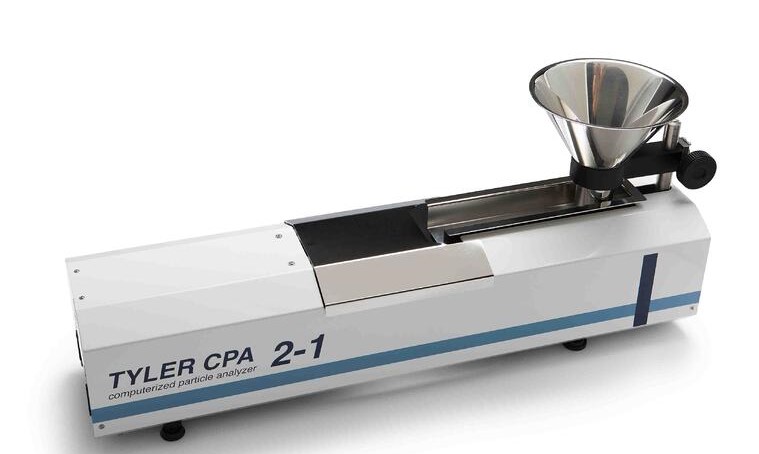Benefits and Drawbacks of an Online CPA System
Particle analysis is a crucial element to reliable quality control. As technology continues to consume the world in which we live, automated particle analysis equipment is becoming more and more popular.
Over the past 140 years, W.S. Tyler has dedicated itself to becoming experts in the world of particle analysis. Through the years, we have gained a comprehensive understanding of what manual steps in particle analysis can be streamlined with technology and started offering automated systems that are connected to an online control platform, such as the online computerized particle analyzer (CPA).
So what exactly is an online CPA?
This article will provide insight into what an online CPA is, how its functions affect particle analysis, and why you may or may not want to consider implementing one into your operation.
What Is an Online CPA and How Is It Different From a Standard CPA Unit?
The term online CPA refers to the process in which a CPA lab unit is converted to run on its own with minimal input needed from the operator. In order to make this an automated process, the CPA unit is connected to a control system through a programmable logic controller (PLC).
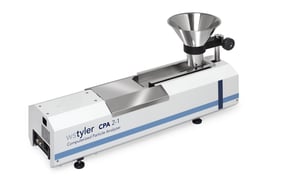
How Does It Affect Particle Analysis?
In a typical particle analysis process, the operator obtains a representative sample of the material being worked with, transports it to their lab, and manually places it onto the CPA to collect the necessary data.
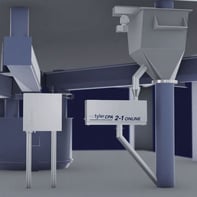
An online CPA eliminates many of the manual aspects of a typical particle analysis process.
With an online system, your CPA unit is placed into an environmentally controlled housing. A sample diverter automatically pulls a representative sample from your current production line and feeds it to the CPA unit. A diverter can be anything from a belt scooper conveyor or a gravity feed system that redirects material to your CPA.
Once the CPA is fed with an adequate amount of sample material, it will automatically run the sample and provide results as soon as the analysis is complete.
How Does an Online CPA Benefit Quality Control?
As stated earlier, an online CPA will eliminate a majority of the manual elements typically seen in particle analysis. That said, one of the best qualities of an online CPA is that it obtains results much quicker than other methods of particle analysis.
Let’s say your material is out of spec, whether it's too small, too large, too coarse, etc., an online CPA will alert you that you need to make some adjustments in your process if you want to make sure this doesn’t keep happening.
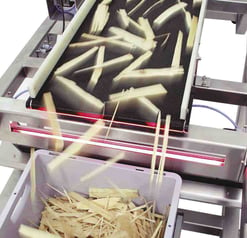
Now, let’s say you were using another method to conduct particle analysis, such as a test sieve analysis. You would have to wait until the material was done being processed to test a sample for
approximately 30 to 45 minutes. It wouldn’t be until 45 minutes after the material is done being processed that you would know something is wrong with your material.
If you only run your material once a day, that means you just spent an entire day working with bad material.
To put it simply, the real-time data that an online CPA unit provides allows you to make decisions on the fly and ensure your operation is running as efficiently as possible.
Drawbacks of an Online CPA
While an online CPA can truly revolutionize the way you conduct particle analysis, some hindering factors need to be taken into consideration.
If you’re considering an online CPA unit, you must first understand that it is going to take time to get things up and running. We must first visit your production facility, coordinating a time in which your engineers and operators can be present so we can start to come up with the best plan of action to set up your system.
The next factor to consider is cost. With an online CPA, you’re buying a standard CPA unit plus the automated capabilities. This includes the programming of the system as well as the PLC.
However, whether you want to pay to have the automated system set up in its entirety is completely up to you.
Now, the final cost of the system varies and is dependent on your particular needs. To get the approximate idea of how much an online CPA will cost to be implemented into your operation, you can provide us with a detailed description of your process, photos of your plant, the type of sampler you want to work with and the level of programming you will want.
Why Should I Use an Online Unit Over a Lab Unit?
Online CPAs were designed for those operations where an error in your material for an extended period of time will have a negative impact on your final product.
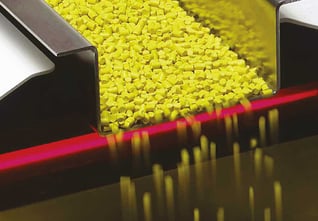
That said, if this doesn’t sound like your operation, odds are a standard lab unit is a more appropriate fit.
To provide further insight, operations such as food production, fertilizer processing,
and salt production are great examples of operations that would benefit from using an online CPA the most. The instant results provided by an online CPA allows for continuous production, which means the final product is packaged quicker and its overall quality is better.
It simply boils down to the needs of your operation specifically.
Enhance Your Particle Analysis Procedure
Yielding accurate particle analysis results is crucial if you wish to have a reliable means of quality control. Automating this process takes it a step further by ensuring your particle analysis procedure is running as efficiently as possible.
To do so, you must implement a system like the Online Computerized Particle Analyzer (CPA).
An online CPA unit is simply one of our standard CPA units that has been connected to a control system through a programmable logic controller (PLC) in order to make the unit run on its own with minimal input by the operator.
If working with faulty material for an extended period of time will have a negative impact on your operation’s success, then a CPA may be right for you. The food, salt, and fertilizer industries provide great examples of operations that can benefit from the automated functions of an online CPA.
Having worked within the particle analysis industry for over 140 years, W.S. Tyler has the experience needed to help you determine if an online CPA unit is right for you.
To gain a better understanding of the CPA and how it works, feel free to download our Computerized Particle Analyzer Product Guide.
Want all the latest industry trends and innovations sent directly to your inbox? Subscribe to our monthly newsletters today.
Additional Articles You May Find Helpful:
About Ronnie Brown
Ronnie is the Content Writer for W.S. Tyler and has four years of experience as a professional writer. He strives to expand his knowledge on all things particle analysis and woven wire mesh to leverage his exceptional writing and graphic design skills, creating a one-of-a-kind experience for customers.

